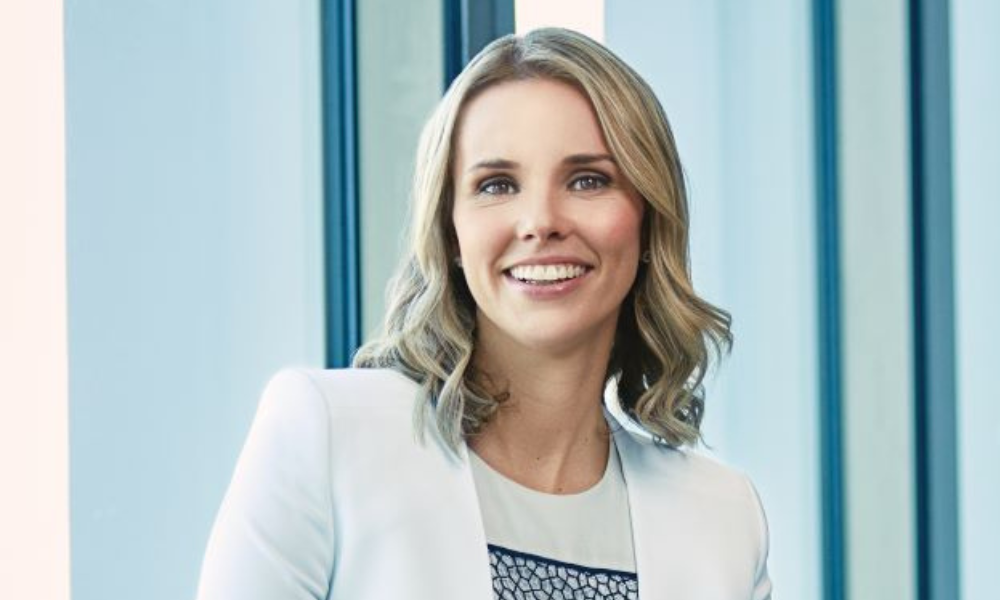How one advisor found her niche by providing unique expertise to help divorced, widowed female clients

Statistics show that 90% of women will be solely responsible for their financial management, and for Darcie Crowe, Senior Wealth Advisor & Senior Portfolio Manager at Canaccord Genuity Wealth Management, real-life examples kept walking through the door — and she was able to put her specialized training to work.
Crowe earned her Certified Divorce Financial Analyst (CDFA) designation and became a member of the Institute for Divorce Financial Analysts (IDFA) “because enough clients and referrals were in that situation and asking for advice about the financial implications, and I quickly realized there’s a lot of unique planning required and some of the specialty education that’s part of the CDFA program would be beneficial.”
Whether because the Baby Boomer generation is reaching the age where many spouses — particularly women — are seeing their partners die, because there’s a significant uptick in Grey Divorces, or because the volatility of the last few years has driven women to take a more active role in their finances, it’s a strong area of need where people are going through transitional life events and need specific guidance.
“A big part of my practice focuses on clients in these situations and I have a lot of experience working through this complex but comprehensive planning process,” Crowe says. “Making sure their investment portfolio aligns with their needs is incredibly important, but there are so many other ways to add value to their financial security going forward. It’s an incredibly challenging, emotional time — but they’re also making significant financial decisions that will impact the rest of their life.”
At the beginning of a divorce the first thing that comes to mind is often hiring a lawyer, and while that’s important, the financial side of the equation also needs to be considered. Many will reach out to a planner or advisor once the divorce is finalized, but it’s beneficial to work with one while going through the process rather than after the settlement.
For Crowe, the first step is to develop an in-depth understanding of the client’s budget sheet and monthly cashflow. Clients must be aware of their assets and liabilities, and how their incomes and expenses will look as they move forward solo. It’s important to be proactive — for example, making any immediate changes that need to be done to ensure financial security — but when they’re in the flux of a life transition, Crowe stresses the importance of taking “a really empathetic approach.”
“We often say, you don’t want to make any rash decisions within 6-12 months unless there’s something glaringly obvious,” she says. “Clients need time to digest and work through the emotional ramifications before they make any further drastic changes. We make sure the client feels heard and are given space from an emotional standpoint, and then we invest the time to educate them and make sure they’re confident making decisions going forward.”
The next step is putting in place a comprehensive financial and investment plan, for throughout the divorce process and afterwards. There are so many concerns in the early stages, such as whether or not they are able to keep the family home or if they’ll have to return to work, and working through a financial plan with the client helps answer those key questions and highlight any significant changes that need to be made to their lifestyle.
From an investment perspective, many of the clients Crowe connects with weren’t in charge of investments within the family previously and have no experience with these new responsibilities. Look at their portfolio and determine if they’re comfortable with it now that they’re the one managing it for themselves as a single person rather than a spouse managing it for the family. Is it suitable? Is it working towards their new goals and objectives? Is it taking into account their risk tolerance? These are the questions that need to be asked and answered at this stage, Crowe notes, adding she makes the effort to stem this issue before it becomes one: in her practice, she puts “a strong emphasis on having both parties at the table as much as possible.”
The more they’re connected and engaged in financial management, the more comfortable they become with the concepts over time, and if they ever do find themselves in a situation where the big decisions fall on them during an incredibly emotional and challenging time, they’ll be armed with a good sense of their objectives and an understanding of how their money is working for them.
“From helping them file insurance policies, to changes to estate planning, to updating their financial plans to prepare them for the future, we work closely with the client to ensure they feel secure, educated, knowledgeable, and confident,” says Crowe. “It can be a couple years’ process to get them there, but it’s incredibly rewarding when we do.”
While Crowe finds her specialization within a niche market helpful in building out a practice and attracting clients going through life transitional events who require the unique training you have, whether a financial professional is a generalist, works with businessowners, or prefers to collaborate with physicians, there is one universal truth: investment returns are incredibly important in this line of work but they’re not the only thing that matters to clients.
“Broader, more in depth conversations about what’s going on in the clients’ lives and the lives of their family are incredibly valuable as an advisor,” Crowe says. “If you dig deeper than surface level interactions, you can uncover additional ways to add value.”



